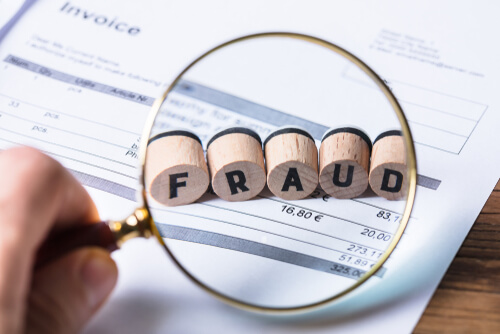Contact Our Firm
The use of the Internet or this form for communication with the firm or any individual member of the firm does not establish an attorney-client relationship. Confidential or time-sensitive information should not be sent through this form.
I have read and understand the Disclaimer and Privacy Policy.

Recent Blog Posts
When Can Residential Real Estate Transactions Lead to Litigation?
 Buying or selling a home is often one of the most significant financial transactions that people may undertake in their lifetime. While most residential real estate transactions proceed smoothly, there are instances where disputes may arise, and litigation may be required to resolve these matters. Understanding when these disputes may occur can help buyers and sellers navigate potential pitfalls and minimize the risk of legal action. An experienced attorney can provide guidance on how to address concerns that may lead to litigation, including:
Buying or selling a home is often one of the most significant financial transactions that people may undertake in their lifetime. While most residential real estate transactions proceed smoothly, there are instances where disputes may arise, and litigation may be required to resolve these matters. Understanding when these disputes may occur can help buyers and sellers navigate potential pitfalls and minimize the risk of legal action. An experienced attorney can provide guidance on how to address concerns that may lead to litigation, including:
Breach of Contract
A common cause for litigation in residential real estate transactions is the violation of the terms of a purchase contract by either the buyer or the seller. This occurs when one party does not fulfill all of their obligations as detailed in the purchase agreement. Examples include failing to close on time, not disclosing material defects, or refusing to complete necessary repairs before closing.
How Small Businesses Can Benefit From General Counsel Services
 Running a small business can be both exciting and challenging. As a small business owner, you have to wear many hats and juggle multiple responsibilities. One area that often gets overlooked is legal counsel. Many small businesses believe that they do not need legal assistance until a problem arises. However, having access to general counsel services can provide numerous benefits and help protect your business in the long run. By working with an attorney who can provide guidance on how to address various legal concerns, you can build a successful business strategy that will allow you to achieve your goals.
Running a small business can be both exciting and challenging. As a small business owner, you have to wear many hats and juggle multiple responsibilities. One area that often gets overlooked is legal counsel. Many small businesses believe that they do not need legal assistance until a problem arises. However, having access to general counsel services can provide numerous benefits and help protect your business in the long run. By working with an attorney who can provide guidance on how to address various legal concerns, you can build a successful business strategy that will allow you to achieve your goals.
The Role of General Counsel for Small Businesses
A general counsel can act in a similar role as an in-house lawyer for your small business. This can be beneficial if you are unable to have an attorney on staff. Your general counsel will be responsible for providing legal advice, guidance, and representation in various matters related to your company's operations. Instead of hiring outside attorneys on an ad-hoc basis, having a dedicated general counsel allows you to build a relationship with someone who understands the intricacies of your business.
Addressing Intellectual Property When Selling a Small Business
 Selling a small business can be an exciting and rewarding endeavor. However, it is important to consider all aspects of the sale, including intellectual property (IP) rights. Intellectual property refers to creations of the mind, such as inventions, designs, logos, brand names, and trade secrets. These intangible assets can add significant value to a small business, and they should not be overlooked during the sales process. An attorney with experience in business transactions can provide guidance on how to address these issues while ensuring that intellectual property will be valued correctly.
Selling a small business can be an exciting and rewarding endeavor. However, it is important to consider all aspects of the sale, including intellectual property (IP) rights. Intellectual property refers to creations of the mind, such as inventions, designs, logos, brand names, and trade secrets. These intangible assets can add significant value to a small business, and they should not be overlooked during the sales process. An attorney with experience in business transactions can provide guidance on how to address these issues while ensuring that intellectual property will be valued correctly.
The Importance of Intellectual Property in Small Business Sales
Intellectual property plays a crucial role in many small businesses. It sets them apart from competitors and establishes their unique identity in the marketplace. When selling a small business, it is essential to address IP rights to ensure that they are properly valued, transferred, and protected.
4 Issues to Address When Negotiating Business Contracts
 When it comes to running a business, contracts play a crucial role in ensuring that transactions can be completed correctly and that relationships with partners and vendors can be maintained. A well-drafted contract will ensure that all parties involved are on the same page and have clear expectations. Whether you are entering into an agreement with a vendor, supplier, employee, or client, negotiating business contracts is an essential part of protecting your interests and minimizing potential risks. An experienced attorney can advise you of your rights and options as you negotiate contracts, and they can ensure that all legal issues will be addressed correctly.
When it comes to running a business, contracts play a crucial role in ensuring that transactions can be completed correctly and that relationships with partners and vendors can be maintained. A well-drafted contract will ensure that all parties involved are on the same page and have clear expectations. Whether you are entering into an agreement with a vendor, supplier, employee, or client, negotiating business contracts is an essential part of protecting your interests and minimizing potential risks. An experienced attorney can advise you of your rights and options as you negotiate contracts, and they can ensure that all legal issues will be addressed correctly.
The Importance of Well-Drafted Contracts
A well-drafted contract serves as the foundation for any successful business relationship. It outlines the rights and obligations of each party involved and provides clarity on key terms such as payment schedules, deliverables, timelines, confidentiality provisions, dispute resolution mechanisms, and more.
Incidents at Broward County Courthouse Raise Concerns About Business Liability
 People usually expect a certain level of safety when using roads, parking lots, parking garages, and other areas that are open to the public. While this is true in nearly every location, facilities owned and operated by government organizations are often expected to be even more safe. Unfortunately, recent reports have shown that this is not necessarily the case at the Broward County courthouse. After some incidents that took place in the courthouse’s parking garage, people have realized that they may not have the protections they expect.
People usually expect a certain level of safety when using roads, parking lots, parking garages, and other areas that are open to the public. While this is true in nearly every location, facilities owned and operated by government organizations are often expected to be even more safe. Unfortunately, recent reports have shown that this is not necessarily the case at the Broward County courthouse. After some incidents that took place in the courthouse’s parking garage, people have realized that they may not have the protections they expect.
For business owners, this raises the question of whether they may encounter liability issues if car accidents or other incidents occur in their parking lots or on other parts of their property. By understanding the potential business liability issues that may affect them and the steps they can take to protect themselves, business owners can make sure they are prepared to handle these concerns. Business owners can work with a skilled and experienced attorney to address these matters, provide themselves with legal protections, and respond to any incidents that may occur.
What Should an Employer Include in an Employee Handbook?
 An employee handbook is a valuable tool that provides essential information to employees about their rights, responsibilities, and the policies and procedures of the company. It sets expectations for behavior and helps maintain consistency for all employees. It is crucial for employers to create comprehensive employee handbooks that are tailored to the specific needs of their companies, and they can do so with the help of an attorney who has a strong understanding of the laws that affect employers and employees.
An employee handbook is a valuable tool that provides essential information to employees about their rights, responsibilities, and the policies and procedures of the company. It sets expectations for behavior and helps maintain consistency for all employees. It is crucial for employers to create comprehensive employee handbooks that are tailored to the specific needs of their companies, and they can do so with the help of an attorney who has a strong understanding of the laws that affect employers and employees.
The Importance of an Employee Handbook
An employee handbook serves multiple purposes:
-
It promotes clear communication between an employer and their employees.
When Can I Seek an Injunction During Contract Litigation?
 In the world of business, contracts are essential for establishing agreements and ensuring that all parties involved fulfill their obligations. However, there are situations where disputes may arise about violations of the terms of a contract. When these disputes escalate to litigation, seeking an injunction can be a powerful tool business owners can use to protect their rights and interests. With the help of an experienced attorney, a business owner can request relief from the court and minimize the harm suffered due to a breach of contract.
In the world of business, contracts are essential for establishing agreements and ensuring that all parties involved fulfill their obligations. However, there are situations where disputes may arise about violations of the terms of a contract. When these disputes escalate to litigation, seeking an injunction can be a powerful tool business owners can use to protect their rights and interests. With the help of an experienced attorney, a business owner can request relief from the court and minimize the harm suffered due to a breach of contract.
What Is an Injunction?
An injunction is a legal remedy that aims to prevent harm or enforce specific actions by ordering someone to do or refrain from doing something. It is typically sought when monetary damages alone would not adequately resolve the issue at hand. In contract litigation, obtaining an injunction can help maintain the status quo until the dispute is resolved.
How Can Small Companies Protect Themselves from Fraud?
 One of the most common causes of small businesses failing is fraud. While this fraud can come from outside sources, the most significant threat comes directly from the inside, committed by employees. It is critical for small business owners to take the steps to ensure that they protect their companies and develop strategies to fight fraud. The following is a brief overview of some of these steps. For more details about effective strategies, contact a Florida business lawyer.
One of the most common causes of small businesses failing is fraud. While this fraud can come from outside sources, the most significant threat comes directly from the inside, committed by employees. It is critical for small business owners to take the steps to ensure that they protect their companies and develop strategies to fight fraud. The following is a brief overview of some of these steps. For more details about effective strategies, contact a Florida business lawyer.
Due Diligence in the Hiring Process
One of the most important steps your business can take in preventing fraud is to make sure the people working for you are of good moral character. It is strongly recommended that you conduct background checks before hiring employees.
How Common Are Security Deposit Disputes?
 Many Floridians decide to invest in rental properties as a primary or secondary source of income. While this income stream can be lucrative, it can also be wrought with frustrating – and expensive – issues because of problem tenants. We have all heard horror stories of tenants who damage property, refuse to pay rent, or commit serious violations of lease agreements. One of the most common disputes our firm’s Florida real estate attorneys handle involves security deposits.
Many Floridians decide to invest in rental properties as a primary or secondary source of income. While this income stream can be lucrative, it can also be wrought with frustrating – and expensive – issues because of problem tenants. We have all heard horror stories of tenants who damage property, refuse to pay rent, or commit serious violations of lease agreements. One of the most common disputes our firm’s Florida real estate attorneys handle involves security deposits.
Florida Law and Security Deposits
When a tenant rents a property, it is common practice for the landlord to require a security deposit. Under Florida law, there is no cap on what a landlord can require for a deposit, however, in most situations, the deposit is equal to one or one and a half months of rent.
Florida law requires landlords to follow certain rules regarding how that deposit should be stored. There are three legal ways a landlord can hold the security deposit:
Preventing Wrongful Termination Lawsuits
 One of the downsides of owning your own company is that there will inevitably be situations where you will need to fire an employee. Unfortunately, no matter how valid the reason for that termination is, there are employees who will take legal action against their former employer, claiming wrongful termination.
One of the downsides of owning your own company is that there will inevitably be situations where you will need to fire an employee. Unfortunately, no matter how valid the reason for that termination is, there are employees who will take legal action against their former employer, claiming wrongful termination.
These lawsuits usually include a request for financial compensation for losses the employee claims they suffered because of being fired. Given how damaging these types of legal actions can be to a company, both financially and to its reputation, it is important to understand what types of actions can trigger a lawsuit and how a Florida employment lawyer can help you avoid them.
On What Grounds Can a Wrongful Termination Lawsuit Be Filed?
Under Florida employment law, most employees are considered “at-will.” This means that an employer is legally able to terminate an employee at any time and for any reason as long as the action does not violate employment laws. Exceptions to that rule are if the employee is working under either a union or employment contract.















